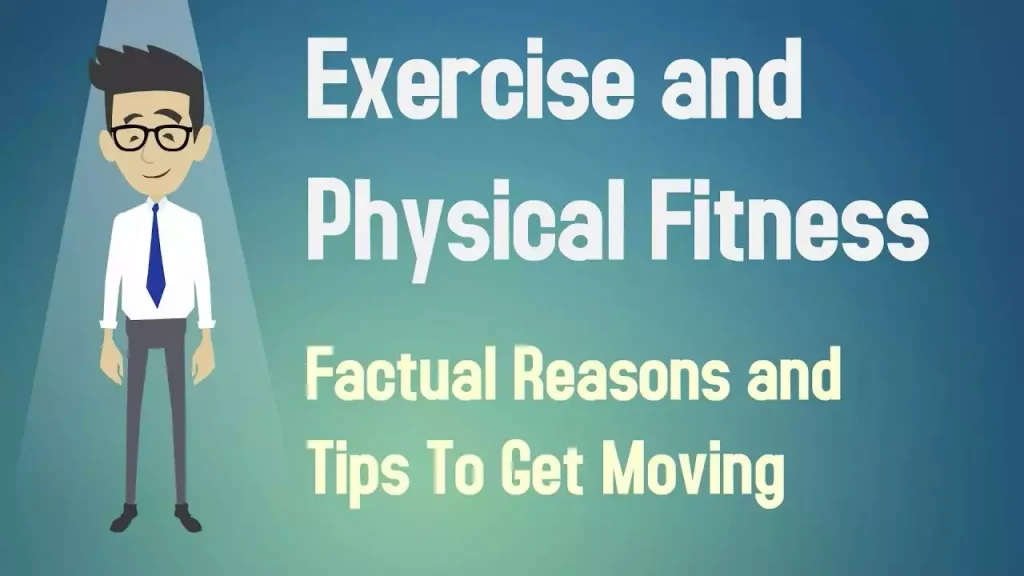Clear Fitness Importance How To Get Fit Fast
In today’s fast-paced world, the pursuit of fitness has become increasingly vital as individuals seek to enhance their overall well-being and quality of life.
The importance of maintaining a healthy lifestyle cannot be overstated; regular physical activity not only boosts physical health but also significantly benefits mental and emotional well-being.
As demands from work, family, and personal commitments often leave little time for self-care, many are left wondering how to effectively achieve fitness goals without sacrificing their busy schedules.
This article, “Clear Fitness Importance: How To Get Fit Fast,” aims to demystify the path to fitness by providing actionable insights and strategies that can be easily integrated into everyday routines.
By focusing on efficient workouts, nutrition, and lifestyle adjustments, we will explore ways to maximize results in a shorter time frame.
Whether you are a fitness novice or someone looking to reinvigorate your routine, our comprehensive guide will equip you with the tools you need to embark on a transformative journey toward better health.
Join us as we delve into the key principles of effective fitness and discover how you can achieve your goals faster than ever before.
Table of Contents Clear Fitness Importance How To Get Fit Fast
Establish clear fitness goals today
Setting specific and attainable fitness goals serves as a crucial foundation for a successful health journey.
By defining clear objectives, individuals can create a structured plan tailored to their unique needs and aspirations.
Whether the aim is to increase endurance, build strength, or achieve a healthy weight, having well-articulated goals helps to maintain motivation and focus.
Furthermore, it enables individuals to measure progress effectively, adjusting their strategies as necessary to ensure continued growth and achievement.
Additionally, clear fitness goals foster a sense of accountability and provide a roadmap for prioritizing health in daily life.
They encourage individuals to establish routines that incorporate regular physical activity and balanced nutrition, transforming aspirations into actionable steps.
With the right goals in place, the journey towards improved fitness becomes not only more achievable but also more enjoyable, as individuals celebrate milestones and recognize their progress along the way.
Incorporate strength training into routine
A well-rounded fitness regimen should include strength training, which plays a vital role in enhancing overall physical health.
This type of exercise improves muscle mass, increases metabolism, and promotes better bone density, all of which contribute to long-term health and vitality.
By integrating strength training into a regular routine, individuals can also experience improvements in functional strength, making daily activities easier and reducing the risk of injuries.
Whether through bodyweight exercises, resistance bands, or weightlifting, incorporating a variety of strength-building activities can lead to comprehensive fitness benefits.
Moreover, the psychological advantages of strength training should not be overlooked.
Engaging in such workouts often leads to increased confidence and a sense of accomplishment as individuals observe their progress over time.
This boost in self-esteem can motivate further commitment to fitness goals, fostering a positive cycle of health and well-being.
By establishing a consistent strength training schedule, individuals can enhance their physical capabilities while simultaneously nurturing a resilient mindset, making it a fundamental aspect of any effective fitness strategy.
Focus on a balanced diet
A balanced diet is essential for supporting overall health and enhancing physical performance.
It provides the necessary nutrients that the body needs to function optimally, including carbohydrates for energy, proteins for muscle repair, and fats for essential bodily functions.
Incorporating a variety of fruits, vegetables, whole grains, lean proteins, and healthy fats ensures that individuals receive an adequate intake of vitamins and minerals, which play critical roles in various biological processes.
Moreover, proper nutrition aids in recovery from workouts, helping to replenish energy stores and reduce muscle soreness, thus allowing for more consistent training.
Beyond physical benefits, a well-balanced diet contributes significantly to mental well-being.
Nutrient-dense foods have been shown to positively influence mood and cognitive function, as they provide the brain with the essential nutrients it requires to operate effectively.
Establishing healthy eating habits not only enhances energy levels and focus but also promotes a sense of discipline and control that can extend into other facets of life.
By prioritizing nutrition alongside physical activity, individuals can create a holistic approach to their fitness journey, ultimately leading to sustainable health and wellness outcomes.
Stay hydrated throughout daily activities
Maintaining adequate hydration is crucial for optimal physical and cognitive performance throughout daily activities.
Water plays a vital role in various bodily functions, including temperature regulation, nutrient transport, and waste elimination.
Dehydration can lead to fatigue, decreased concentration, and impaired physical performance, making it essential to drink water consistently throughout the day.
Incorporating hydration into your routine can be as simple as carrying a water bottle or setting reminders to take regular water breaks, ensuring that you replenish fluids lost through sweat and respiration.
In addition to water, consuming foods with high water content, such as fruits and vegetables, contributes to overall hydration.
It is important to be aware of individual hydration needs, which can vary based on factors such as activity level, climate, and personal health.
By prioritizing hydration, individuals can enhance their energy levels, improve focus, and support overall well-being, ultimately leading to more productive and fulfilling daily experiences.
Prioritize consistency over quick results.
Consistent efforts in fitness yield more sustainable results than pursuing rapid transformations.
Establishing a routine that incorporates regular exercise and healthy eating habits helps to cultivate a lifestyle that not only supports physical health but also enhances mental resilience.
Quick fixes or extreme diets may produce immediate changes, but these are often short-lived and can lead to cycles of yo-yo dieting or burnout.
By focusing on gradual progress through consistent actions, individuals can develop a deeper understanding of their bodies and create lasting habits that promote overall well-being.
Emphasizing consistency allows for the integration of fitness into everyday life, making it easier to maintain long-term commitment.
This approach fosters patience and encourages individuals to celebrate small victories along their journey, reinforcing motivation and accountability.
Over time, the cumulative effects of consistent training and healthy choices lead to improved strength, endurance, and overall fitness, demonstrating that the path to health is a marathon, not a sprint.
Monitor progress to stay motivated
Tracking progress serves as a powerful tool in maintaining motivation throughout the fitness journey.
By regularly assessing achievements, whether through measurements, performance benchmarks, or personal reflections, individuals can gain insights into their development and recognize the tangible benefits of their efforts.
This practice not only reinforces the progress made but also helps identify areas for improvement, creating a sense of purpose and direction in one’s fitness routine.
Additionally, acknowledging milestones, regardless of their size, fosters a positive mindset and encourages perseverance.
Celebrating these achievements, such as reaching a new personal best in a workout or adhering to a healthy eating plan for a consistent period, can boost self-confidence and reinforce the commitment to long-term goals.
As individuals see their hard work reflected in measurable outcomes, they are more likely to stay engaged and motivated, navigating challenges with resilience and a renewed sense of dedication.
Include rest days for recovery
Rest days play a crucial role in any effective fitness regimen, allowing the body to recover and rejuvenate after intense physical activity.
During exercise, particularly strength training or high-intensity workouts, muscle fibers experience micro-tears that need time to heal.
This recovery period is essential for muscle growth, strength enhancement, and overall performance improvement.
Without adequate rest, the risks of overtraining increase, potentially leading to injuries, fatigue, and diminished progress.
Incorporating designated rest days into a workout schedule not only aids physical recovery but also supports mental well-being.
Regular breaks can help prevent burnout, keeping motivation levels high and enhancing enjoyment in fitness pursuits.
By giving the body time to rest, individuals are more likely to return to their routines with renewed energy and focus, ultimately leading to more sustainable results in their fitness journey.
Balancing activity with recovery is key to achieving long-term goals and maintaining a healthy lifestyle.
Seek professional guidance if needed
Consulting with a fitness professional can provide invaluable insights tailored to individual needs and goals.
Personalized guidance can help you navigate the complexities of exercise selection, nutrition, and recovery strategies, ensuring that you adhere to best practices while optimizing your results.
A qualified trainer or coach can assess your current fitness level, identify any imbalances or weaknesses, and develop a structured program that aligns with your objectives, whether that involves weight loss, muscle gain, or overall health improvement.
Moreover, professional guidance can be particularly beneficial for those new to fitness or looking to make significant changes to their regimen.
Experienced trainers can offer motivation, accountability, and expertise, facilitating a safer and more effective workout experience.
They can also provide education on proper techniques, which minimizes the risk of injury and promotes a deeper understanding of how various exercises contribute to overall fitness.
By leveraging professional support, individuals can enhance their fitness journeys and achieve their desired outcomes more efficiently.
In conclusion, achieving fitness and maintaining a healthy lifestyle is a multifaceted journey that requires commitment, planning, and the right strategies.
By prioritizing clear fitness goals, adopting effective training routines, and emphasizing proper nutrition, individuals can accelerate their progress and experience significant improvements in their overall well-being.
It is essential to remember that consistency is key, and while quick results may be appealing, sustainable changes yield the most lasting benefits.
With the right mindset and resources, anyone can navigate the path to fitness effectively and efficiently, paving the way for a healthier future.
FAQ
What are the key components of a balanced fitness program that can help individuals achieve quick results?
A balanced fitness program includes three key components: cardiovascular exercise, strength training, and flexibility work.
Cardiovascular activities, like running or cycling, boost heart health and burn calories.
Strength training, using weights or body resistance, builds muscle and increases metabolism.
Flexibility exercises, such as yoga or stretching, enhance mobility and prevent injuries.
Additionally, incorporating proper nutrition and hydration supports recovery and energy levels.
Consistency, progressive overload, and rest days are essential for quick results, helping individuals improve fitness efficiently while minimizing the risk of burnout or injury.
How does nutrition play a role in getting fit quickly, and what dietary changes can enhance fitness outcomes?
Nutrition is crucial for fitness as it fuels workouts, aids recovery, and supports muscle growth.
To enhance fitness outcomes, focus on a balanced diet rich in lean proteins, complex carbohydrates, healthy fats, and plenty of fruits and vegetables.
Hydration is also essential.
Consider incorporating whole foods, reducing processed sugars, and timing meals to optimize energy levels before and after workouts.
Additionally, adjusting caloric intake to match fitness goals—whether losing weight or building muscle—can significantly impact results.
Consistency in dietary choices complements exercise routines, promoting faster and more sustainable fitness improvements.
What types of workouts are most effective for rapid fitness improvements, and how can one incorporate them into a busy schedule?
High-Intensity Interval Training (HIIT), strength training, and circuit workouts are effective for rapid fitness improvements.
HIIT boosts cardiovascular fitness and burns calories quickly, while strength training builds muscle and increases metabolism.
Incorporate these workouts into a busy schedule by setting aside 20-30 minutes a few times a week, using apps or online videos for guidance.
Opt for short, intense sessions, or combine them with daily activities, like doing bodyweight exercises during breaks or walking/jogging during lunch.
Prioritizing consistency over duration can yield significant results even with limited time.
What are some common misconceptions about getting fit fast, and how can individuals avoid these pitfalls?
Common misconceptions about getting fit fast include the belief that extreme diets or excessive workouts yield quick results.
Many think that skipping meals or relying solely on supplements will lead to success.
To avoid these pitfalls, individuals should focus on sustainable lifestyle changes, such as balanced nutrition and regular exercise tailored to their fitness level.
Setting realistic goals, prioritizing consistency over intensity, and seeking professional guidance can help foster a healthier approach to fitness.
Remember, lasting results come from patience and dedication, not quick fixes.
How important is rest and recovery in the process of getting fit quickly, and what strategies can be implemented to ensure proper recovery?
Rest and recovery are crucial for quick fitness gains, as they allow the body to repair and strengthen muscles, prevent injury, and improve performance.
Key strategies include scheduling rest days, ensuring adequate sleep (7-9 hours), staying hydrated, maintaining a balanced diet rich in protein and nutrients, and incorporating active recovery activities like walking or yoga.
Additionally, techniques such as stretching, foam rolling, and massages can enhance recovery.
Listening to your body and adjusting intensity based on fatigue levels is essential for optimizing results while minimizing the risk of overtraining.







